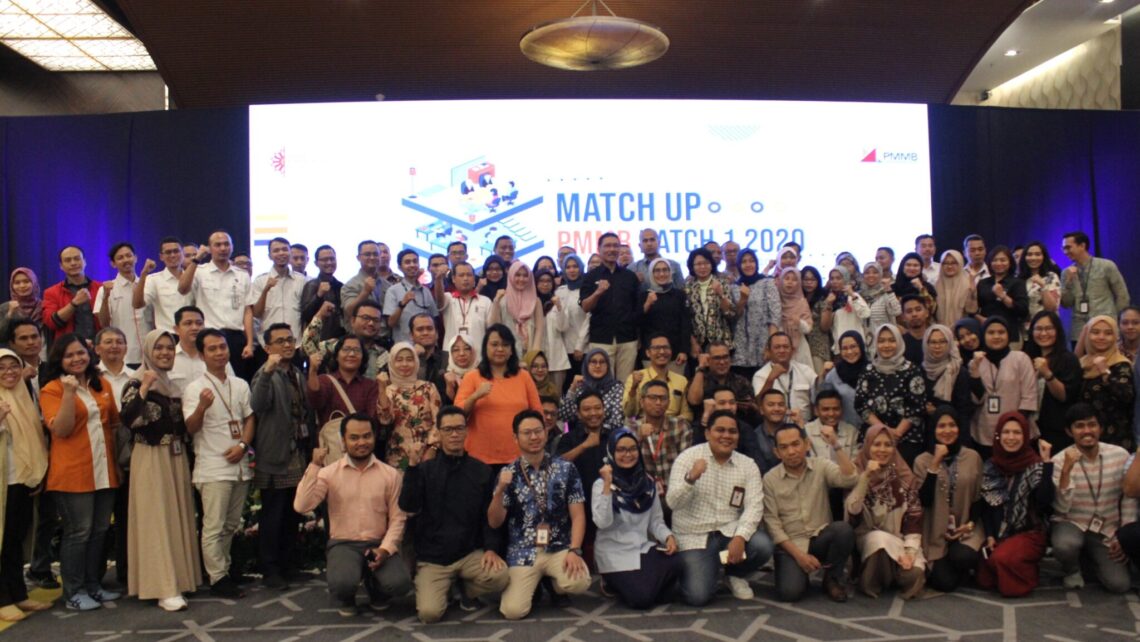Context: Indonesia remains one of the Asia-Pacific countries to have a high youth unemployment rate, at 17.6 per cent (2020). According to ILO, Indonesia’s unemployment rate among 15-24 year olds is the second highest in South-East Asia; this rate has stagnated at high levels for the past two decades. In particular, 40 per cent of the total unemployed population are youth. Even before the COVID-19 pandemic, unemployment trends regarding Indonesia’s youth population were concerning and the pandemic continues to worsen the labour market for its country’s young candidates for jobs.
Implementation of programme/ initiative: In 2018, the Certified Student Internship Programme (PMMB) was initiated by the Indonesian Human Capital Forum (FHCI) and the Ministry of State-Owned Enterprises (BUMN). This programme is offered to university students studying in public universities, and helps guide them to become superior work candidates with qualifying competencies and readiness for global competitiveness. Its aim is to prepare students (including graduates) to become successful employees through offering them internships in participating universities and then connecting them to the programme’s partnered companies. As a minimum, candidates need to be pursuing bachelor’s degrees to qualify. FHCI believes that Indonesia will be more advanced if the number of young, well-trained individuals increases. The programme has been carried out in well-known public universities, namely, University of Indonesia (UI), Gadjah Mada University (UGM) and Bandung Institute of Technology (ITB), and links have been made with enterprises all over the country. Students attending these universities are updated with industry needs and lecture materials, continuously calibrated to developments in relevant industries. Every year of PMMB, the programme has two recruitments: the first batch is carried out in December of the previous year and the second batch is usually carried out in July of the year in question. PMMB has two types of internship programmes, both lasting six months, namely, the Industry Certified Programme and the Competency Certified Programme. If successfully passed, apprentices are to get certificates (Industry Certificate or Competency Certificate). After students graduate, the certificates can be used for job applications if they wish to apply to one of the partnered enterprises, which also gives them an upper hand in the recruitment process and the possibility of a secure job placement.
Main challenges: Due to the COVID-19 pandemic, job market competition is much greater, as students (including new graduates) must compete with job seekers with professional experience who were laid off because of the crisis. Although PMMB continues to run, the implementation of online classes has significantly reduced the number of participating students. The programme recognizes that there is also a rise in skills deficits as a result of digital advancements and inadequate teachings of technology in schools; new initiatives must accommodate an increasingly digitized society.
Results achieved: PMMB has showed tremendous success, amassing participation from 331 universities and 146 companies dispersed across 35 provinces by 2020. Over the period 2018 to 2020, 19,100 students took part in internships and further employment, and this number is expected to increase in the near future. PMMB is one of the leading internship programmes in the country, with active participation from well-established public universities and state-owned enterprises leading to valuable results.
Moving Forward: Looking ahead, PMMB set its goal to cover 21,000 students in 2021. The programme hopes to expand its network further and involve more willing participating universities and companies. The programme also hopes to help students becoming more equipped when entering the work force post-pandemic, whilst at the same time, helping companies in their economic recovery.
Replicability: PMMB demonstrates how close collaboration between educational institutions and corporations allows youth to have first-hand experience in a professional working environment and help mentally prepare them better when they graduate and seek work. In sum, the programme could be replicated in multiple job sectors and extended across corporate businesses to broaden skills and experience of the targeted young population, in the hopes that this contributes to reduced youth unemployment in Indonesia and beyond.
Acknowledgement:
This good practice was kindly prepared by Ms. Alysha Brahmantiara Putri.
References:
https://pintek.id/blog/program-magang-mahasiswa-bersertifikat/
Project Details
Date: January 25, 2021
